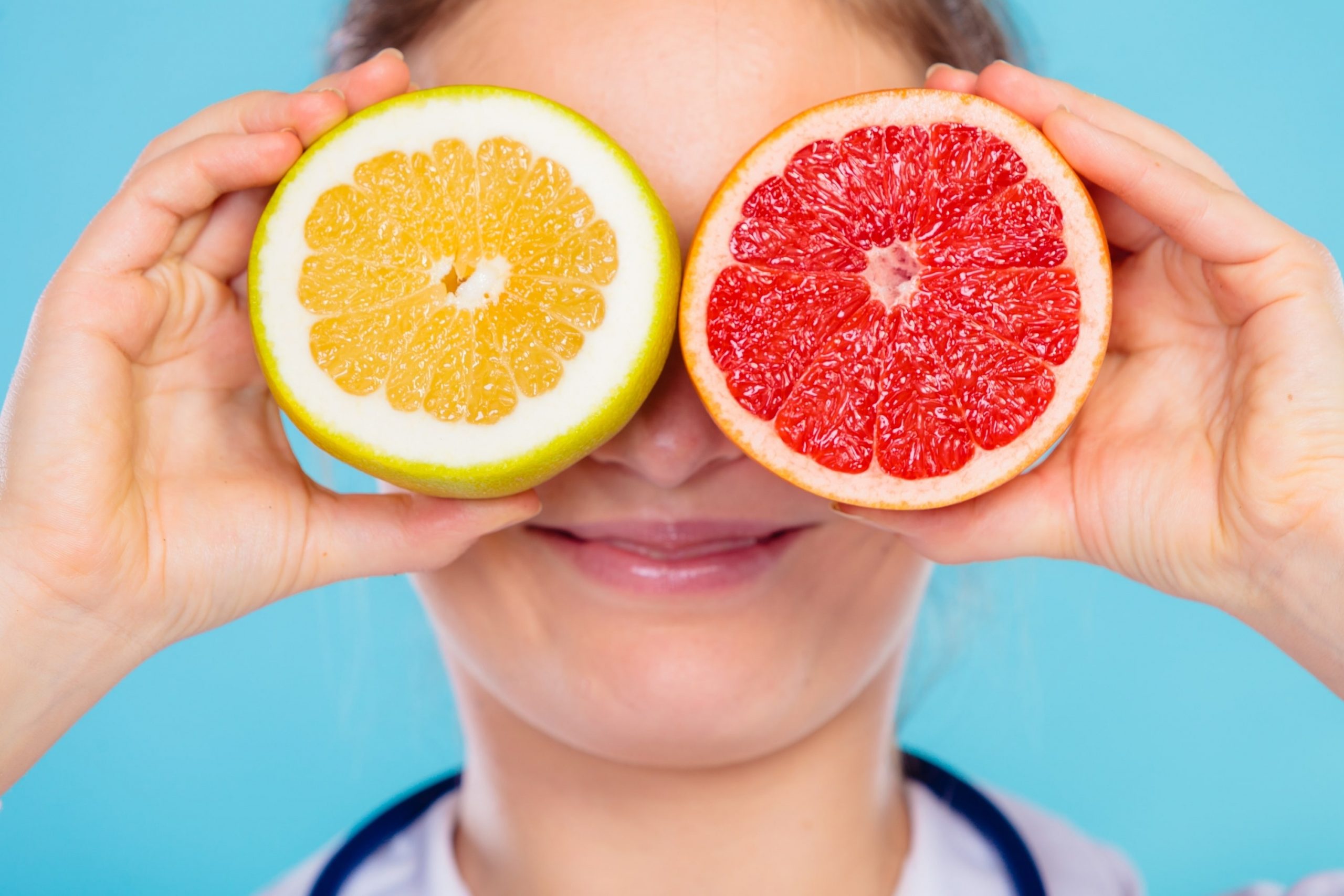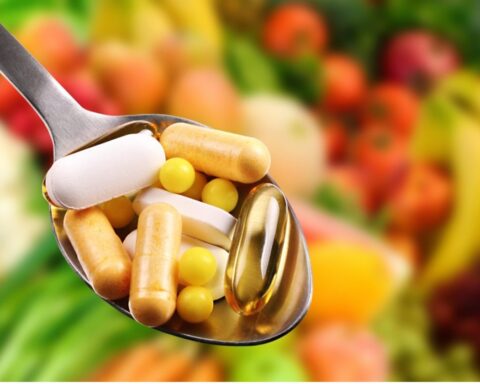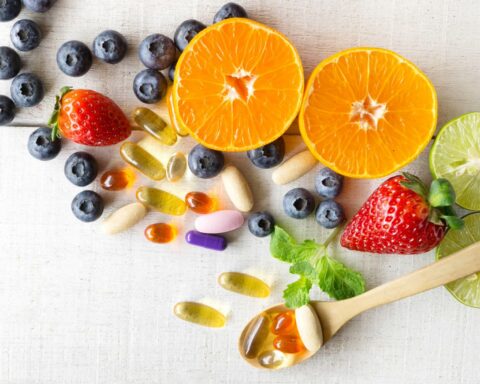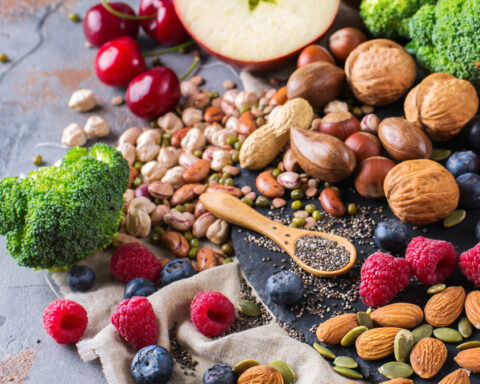Your eyes are structured in such a way that they need various vitamins for proper functioning. Apart from vitamins, they also need other important nutrients that work together to help preserve eyesight. Without these nutrients, your vision can easily degenerate with age.
Your eyes are so complex that they can easily suffer as a result of other comorbid conditions, including diabetes. The common conditions that affect the eye are glaucoma, diabetic retinopathy, cataracts, and age-related macular degeneration. While other factors may lead to these conditions, your dietary intake seems to play a significant role in their development in one way or the other. This article discusses 8 vitamins that can help improve eye health.
1. Vitamin A
Vitamin A is an important nutrient in preservation of vision by protecting the cornea – the outer cover of your eye. This vitamin also forms part of rhodopsin, which is a protein found in the retina and enables you to see in low light conditions. In developed countries, the deficiency of vitamin A is uncommon. However, if it occurs and remain unaddressed, it may complicate to a serious eye problem called xerophthalmia. This is a progressive disease of the eye that presents with night blindness in its initial stages. If vitamin A deficiency is not corrected, the disease can lead to dry eyes since the tear ducts are dried out. In the end, the cornea is softened, leading to a permanent blindness. What’s more, vitamin A has been found to reduce the risk of age-related macular disease (AMD) and cataracts. Healthy sources of vitamin A may include sweet potatoes, pumpkins, leafy green vegetables, and bell peppers.
2. Vitamin E
Studies associate oxidative stress with many conditions that affect the eye. Oxidative stress occurs when free radicals are more than antioxidants. Vitamin E is a powerful antioxidant that may help protect your cells, as well as your eye cells from damages caused by free radicals. Studies suggest that that taking foods rich in vitamin E and AREDS supplement can reduce the risk of AMD progression by 25%. Additionally, foods rich in vitamin E can significantly prevent the development of age-related cataracts. You can find vitamin E in foods, such as cooking oils, nuts, seeds, leafy green vegetables, salmon, and avocado.
3. Vitamin C
Same to vitamin E, vitamin C is a potent antioxidant that may neutralize free radicals and prevent their damages. Vitamin C alongside other beneficial nutrients are included in supplement AREDS, which has been found to be helpful for people with AMD. Vitamin C is also essential in the production of collagen – a protein that gives your eye its structure, especially the sclera and cornea. Additionally, vitamin C can protect your eyes from cataracts. Foods that are particularly high in vitamin C include bell peppers, kale, most tropical fruits, citrus, and broccoli.
4. Vitamin B6, B9 and B12
There are up to eight different types of B vitamins, but vitamin B6, B9, and B12 are of eye importance. Researchers have found that these three B vitamins may reduce homocysteine in your body, which is a protein linked to inflammation and increased risk of having AMD. Evidence show that taking vitamin B6, B9, and 1,000 mcg of vitamin B12 can reduce the risk of developing AMD by 34%.
5. Riboflavin
Researchers have studied riboflavin or vitamin B2 and have found that it may also benefit your eye. This vitamin has powerful antioxidant properties that may help prevent damages caused by free radicals in your body, as well as your eyes. Riboflavin has the ability to prevent the development of cataracts, and deficiency of it can cause the condition. Riboflavin deficiency is one of the symptoms in people with cataracts. Increasing your intake of riboflavin may reduce your risk of cataracts by 51%. The recommended and tolerable amount of riboflavin per day is between 1.1 and 1.3 mg. You can easily meet this requirement by eating foods like beef, milk, yogurt, fortified cereals, and oats.
6. Niacin
Niacin or vitamin B3 is mainly involved with the conversion of food into energy. It also possesses powerful antioxidant properties. Recent studies have shown that niacin may help prevent glaucoma – a condition in which increased ocular pressure damages the optic nerve. It is worth mentioning that excess of this crucial nutrient can lead to blurred vision, corneal inflammation, and macular damage. High amounts of vitamin B3 is about 1.5 to 5 g per day. However, dietary sources of niacin cannot lead to any adverse effects. Healthy source includes poultry, fish, legumes, mushrooms, beef, and peanuts.
7. Lutein and Zeaxanthin
Lutein and zeaxanthin are powerful plant compounds in the carotenoid family. Both lutein and zeaxanthin are concentrated in the retina and macula of your eye, where they act as natural sunblock and protects your eyes from being damaged by blue light. Several studies have consistently shown that lutein and zeaxanthin may prevent cataracts and slow the progression of AMD. Currently, there is no recommended dosage for these plant compounds. However, in studies, 20 mg of lutein every day for six months has safely been used. Rich sources of lutein and zeaxanthin include kale, spinach, and collard greens.
8. Omega-3 Fatty Acids
Omega-3 fatty acids are celebrated for their impressive health benefits, especially heart health. They are a type of polyunsaturated fat. Docosahexaenoic acid (DHA) is a type of omega-3 fat, and is highly concentrated in the cells of the retina. They are important for the formation of cells of the eye. They also have anti-inflammatory properties, which may help prevent diabetic retinopathy. Omega-3 fats may also help treat dry eye disease because it increases the production of tears. Dry eye disease causes discomfort, blurred vision, and dryness. It is easy to find omega-3 fats in many foods, both plant- and animal- based. Keep in mind that animal-based omega-3 fats are easily absorbed. Therefore, you can mix or alternate them occasionally. These foods include flaxseeds, canola oil, olive oil, chia seeds, nuts, fish, and soy.
Conclusion
Vitamins are an essential nutrient needed in your body, particularly your eyes for proper functioning. They generally prevent many diseases affecting the eyes like cataracts and AMD. It is easy to meet vitamin requirements as most foods contain them.
- How Long Should You Bake a Boneless Chicken Breast? - April 19, 2024
- How HØJ Became the New High - June 10, 2023
- “Sahyog-Care for You”: Empowering Communities and Creating Lasting Change - June 10, 2023









